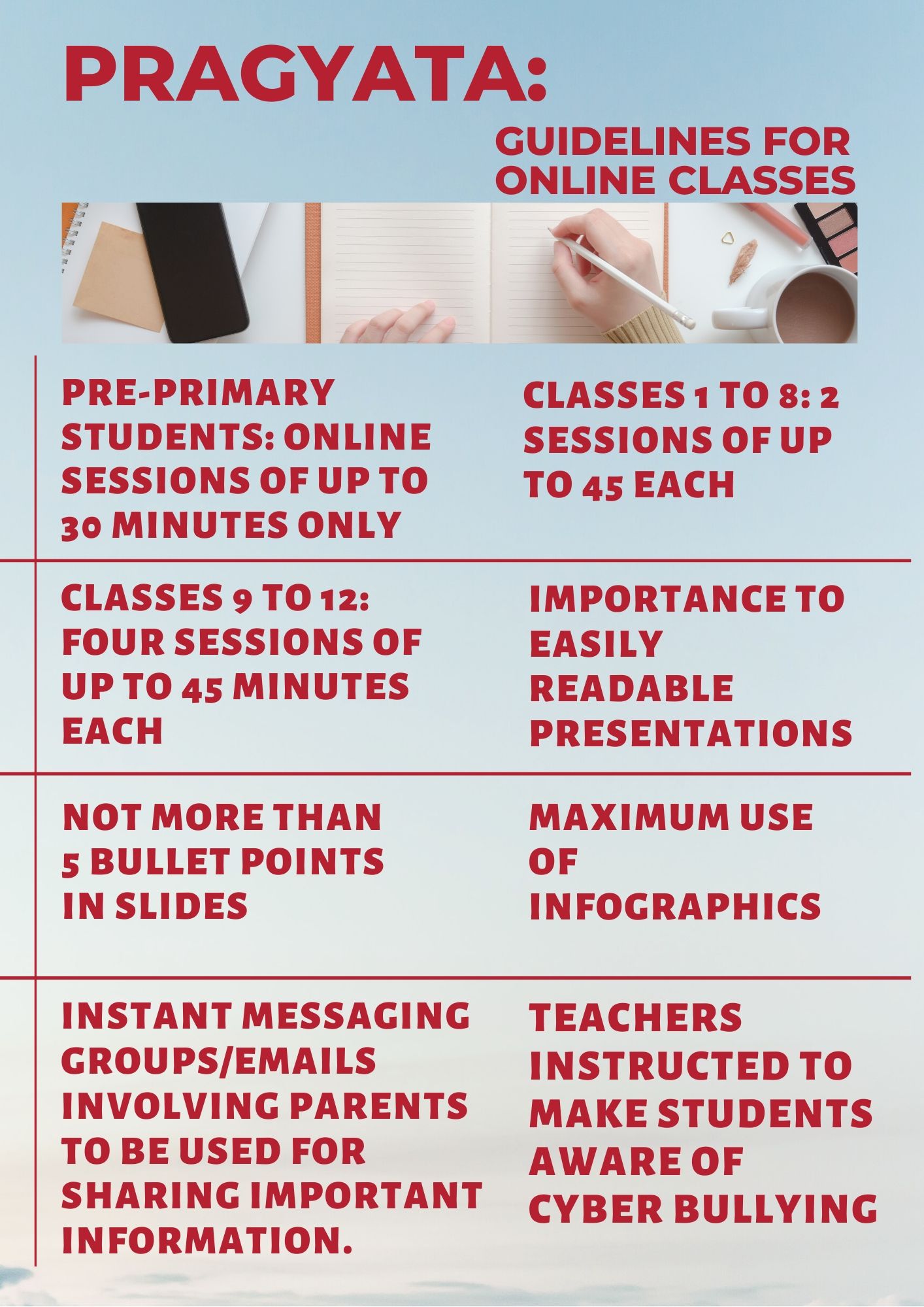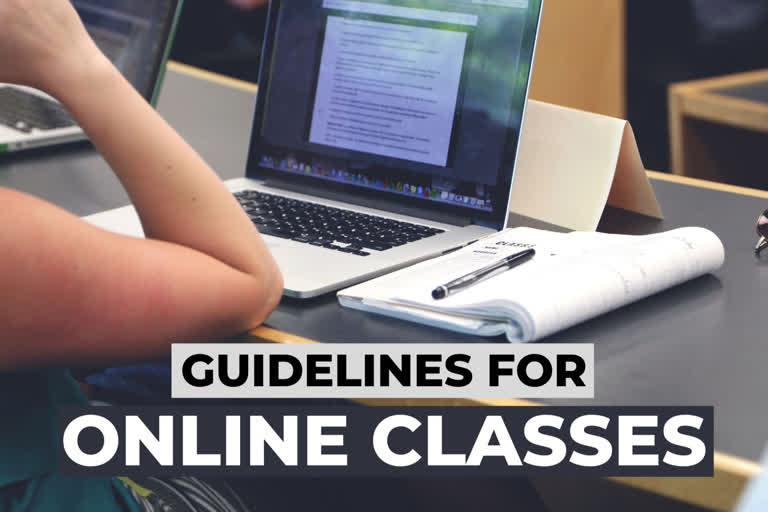New Delhi: The HRD Ministry on Tuesday announced guidelines for online classes by schools and recommended a cap on the duration and the number of sessions in a day for students.
The guidelines have been framed by the ministry, following concerns raised by parents about schools conducting online classes like regular schools, which has increased children's screen time after the COVID-19 pandemic mandated a shift from classroom teaching to online learning as schools continue to remain shut for over four months.

In the guideline called 'Pragyata', the Ministry of Human Resource Development (MHRD) has recommended that the duration for online classes for pre-primary students should not be for more than 30 minutes.
For classes 1 to 8, the HRD Ministry has recommended two online sessions of up to 45 minutes each while for classes 9 to 12, four sessions of 30-45 minutes duration have been recommended.
Noting that in a country like India characterised by multifarious diversity, switching over to digital modes of education needs various states, union territories and national-level organisations to join hands for a change that will sustain post-COVID-19 also.
READ:| HRD Ministry issues guidelines to states, UTs regarding education of migrant workers' children
It also emphasised on the need to unify all efforts related to digital or on-air education, benefitting schoolchildren across the country.
The guidelines include eight steps of online or digital learning -- plan, review, arrange, guide, talk, assign, track and appreciate. These steps guide the planning and implementation of digital education step-by-step with examples.
"The COVID-19 pandemic has led to the closure of schools and has impacted over 240 million children of the country who are enrolled in schools. Extended school closures may cause loss of learning.
"To mitigate the impact of the pandemic, schools will not only have to remodel and reimagine the way teaching and learning have happened so far but will also need to introduce a suitable method of delivering quality education through a healthy mix of schooling at home and schooling at school," HRD Minister Ramesh Pokhriyal 'Nishank' said.
He said that the guidelines have been made with a focus on online education for students who are at home.
"The guidelines have been developed from the perspective of learners, with a focus on online, blended, digital education for students who are presently at home due to the lockdown. These guidelines on digital education provide a roadmap or pointers for carrying forward online education to enhance the quality of education," Nishank added.
READ:| Uninformed commentary on exclusion of topics from CBSE syllabus: HRD minister
Need for assessment, concerns while planning online and digital education like duration, screen time, inclusiveness, balanced online and offline activities, level-wise modalities of intervention, including resource curation, level-wise delivery.
Physical, mental health and wellbeing during digital education, cyber safety and ethical practices, including precautions and measures for maintaining cyber safety and collaboration, and convergence with various initiatives are among the various issues addressed by guidelines for administrators, school heads, teachers, parents and students.
"These guidelines for school heads and teachers describe the need assessment, planning and steps to implement digital education while ensuring cyber safety and privacy measures. It also outlines the support to be provided to students with special needs. The main emphasis is on balanced online and offline activities keeping the screen time as an essential parameter in accordance with the level of students," a senior HRD Ministry official said.
"For parents, the guidelines help to understand the need for physical, mental health and wellbeing along with cyber safety measures for children at home.
"Guidelines for physical health and mental wellness is stressed across the guidelines for all stakeholders measures so that children do not get overly stretched or stressed, or get affected negatively (postural defects, ophthalmic issues, and other physical problems) owing to prolonged use of digital devices. Also, it provides sufficient do's and don'ts regarding ergonomics and cyber safety," the official added.
Universities and schools across the country have been shut since March 16, when the Centre announced a countrywide classroom shut down as part of measures to contain the COVID-19 outbreak. A nationwide lockdown was announced on March 24, which came into effect the next day.
While the government has largely eased restrictions, schools and colleges continue to remain closed.
(With inputs from PTI)



